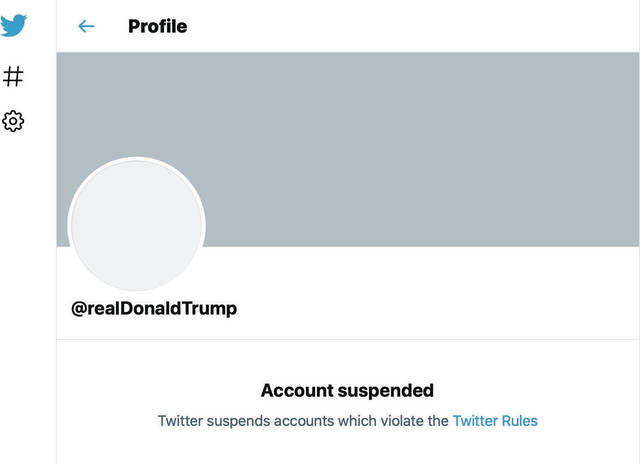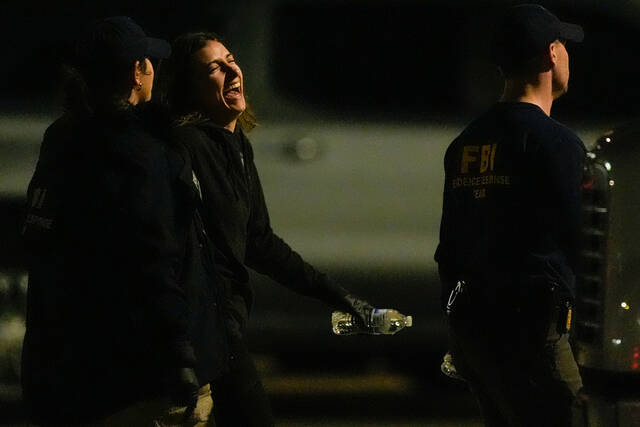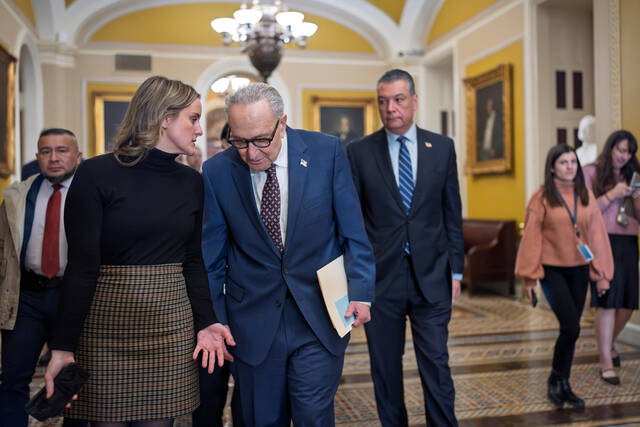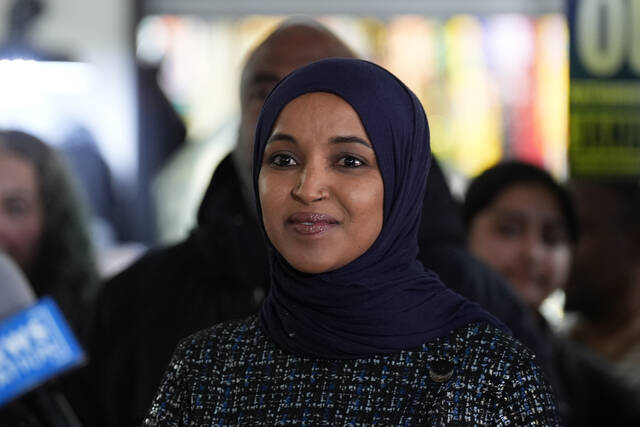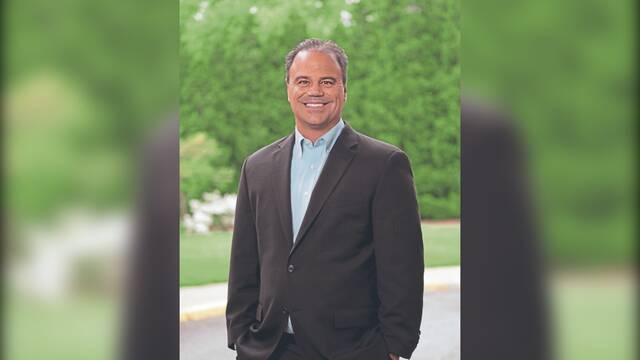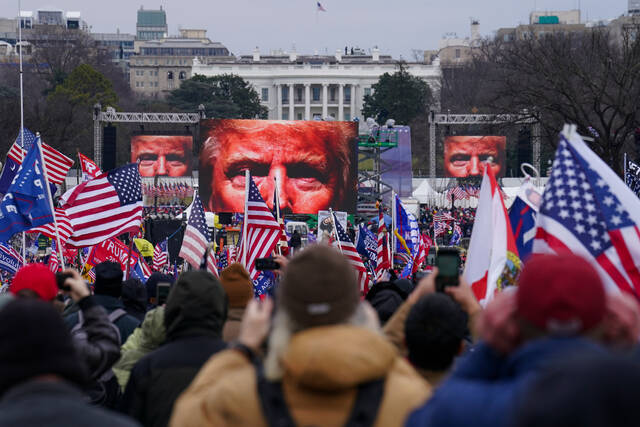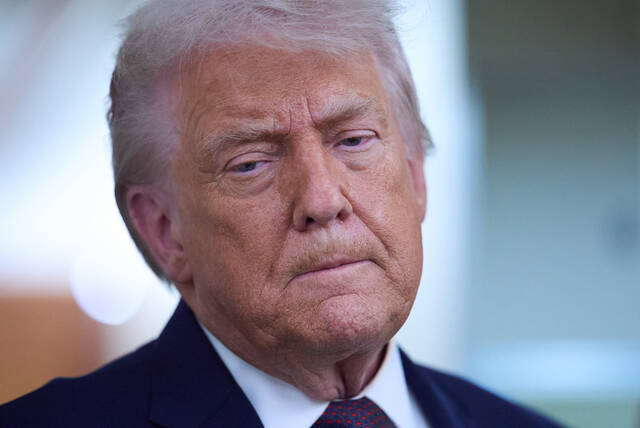With President Trump banned from Twitter and Facebook, he’s lost a favored platform.
But the ban also brings into focus questions about how social media giants should be policed and regulated.
In the statement that accompanied Twitter’s ban of Trump on Friday, the company said the bloody assault on the Capitol, and Trump’s role in encouraging his supporters, left the social media giant no choice.
“Our public interest framework exists to enable the public to hear from elected officials and world leaders directly. It is built on a principle that the people have a right to hold power to account in the open,” Twitter said in the statement. “However, we made it clear going back years that these accounts are not above our rules entirely and cannot use Twitter to incite violence, among other things.”
Trump was also banned from social media sites Facebook, Instagram, Pinterest and others after last week’s events. The moves caused Trump to “go ballistic,” staffers told Politico. Twitter has been Trump’s go-to method of direct communication, making headlines with everything from abrupt firings to comments on coverage by Fox News.
“This is only the beginning,” Rep. Guy Reschenthaler, R-Peters, tweeted Monday. “Big Tech is seeing how much censorship they can get away with without repercussions. If Congress doesn’t act swiftly to contain Big Tech, we will quickly see our First Amendment rights fade away.”
This is only the beginning. Big Tech is seeing how much censorship they can get away with without repercussions.
— Rep. Guy Reschenthaler (@GReschenthaler) January 11, 2021
If Congress doesn’t act swiftly to contain Big Tech we will quickly see our first amendment rights fade away.https://t.co/JU6JABdx7U
The bans have fostered a debate about internet speech and the power and responsibility social media companies have in policing it. In the general view of constitutional experts, the decisions of these companies to ban Trump does not violate the president’s civil rights under the First Amendment.
“I think there’s somewhat of a misconception out there, and I think Trump played into this,” Jerry Dickinson, associate professor at the University of Pittsburgh School of Law, said Monday. Dickinson is a constitutional law expert and former congressional candidate.
“His First Amendment rights have not been violated. Social media companies, they’re not state actors, so they can’t violate the president’s right to free speech,” Dickinson said. “What they’ve done in terms of banning Trump is lawful, legal and constitutional.”
The terms and conditions people agree to when they sign up for a social media site “apply to the president as much as you and me,” Dickinson said. “That includes refraining from language that incites violence. Given what we just saw happen in D.C., there’s no doubt.”
Trump also is facing another impeachment for “incitement of insurrection,” according to a draft of the legislation that is expected to be introduced in the House, The Associated Press reported. Capitol Police were overrun by rioters Wednesday, delaying the ultimate approval of President-elect Joe Biden’s Electoral College win.
“It’s pretty straightforward given the circumstances,” Dickinson said of the social media blackout that has been given to Trump. “Certainly, it’s caught a lot of people off guard and surprised that the president no longer has that bullhorn.”
The situation inspired Ari Lightman, a professor of media and marketing at Carnegie Mellon University’s Heinz College, to take a scholarly look at it. Lightman is in the process of writing “Contrary to Popular Belief, Speech Is Not Free.”
“We need to dispel that notion,” Lightman said.
When people post on social media, they often are governed by “raw emotion” without thinking about the consequences of what they are saying.
Twitter’s reaction to Trump is not surprising, Lightman said. “Twitter’s not an open assembly. It is a private company,” he said. They have policies in place that allow for people to be banned, as Trump was.
Some international voices, including German Chancellor Angela Merkel, call it a step too far, according to a report from Reuters.
“The right to freedom of opinion is of fundamental importance,” Merkel spokesman Steffen Seibert told reporters Monday. “Given that, the chancellor considers it problematic that the president’s accounts have been permanently suspended.”
#BREAKING Merkel finds Twitter halt of Trump account 'problematic' pic.twitter.com/R8FX6ivDxH
— AFP News Agency (@AFP) January 11, 2021
The ban also was called an “assault on free speech” by London’s Sunday Times.
The conversation people are having is important and “long overdue,” Lightman said.
People and government leaders need to evaluate the complexity of the way people get and share information and what should be done about it, Lightman said.
“We need to really think about that, especially in a world where a lot of misinformation, half-truths and malicious intent is out there swirling around,” he said.
Gene Policinski, senior fellow for the First Amendment at the Freedom Forum, a nonprofit dedicated to protecting constitutional rights, echoed Dickinson’s and Lightman’s assessment of what happened to Trump.
But the president remains a person who can get his message to people because he commands a platform larger than the social media landscape.
“The president can command the airwaves in various ways,” Policinski said. “They may not have the same faculty that a social media post has.”
The goal of the First Amendment was not “just to have idle chatter,” Policinski said.
“You have a right to say virtually anything, but you should have something worth saying if you’re going to use the First Amendment as a defense.”
When limiting speech, it needs to be done “very, very, very” carefully, he said.
“One person’s nonvaluable, detrimental speech can be seen differently by someone else,” Policinski said. “Dissent is an important part of free speech. If everyone agrees with it, it doesn’t need protection.”
Another social media player, Parler, a site that catered to conservatives who had tired of Facebook and Twitter, faced a shutdown as Apple, Amazon and Google removed the site from its app stores and, in Amazon’s case, stopped hosting its servers.
The ban has unfolded after Trump lobbied to repeal Section 230 of the Communications Decency Act, a law that protects online platforms from being sued for the content shared by their users. Sabrina Hersi Issa, a human rights advocate who works in the technology field, noted the juxtaposition of the events.
“Had Trump succeeded in his yearslong effort to change the law,” she wrote in a column on NBC News, “which he’d apparently deemed responsible for what he’d heretofore thought was his lack of social media success, it’s entirely possible that the platforms on which his supporters organized their riots would have kicked them off long ago or been sued into doing so.”


